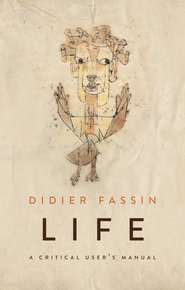Didier Fassin
Книги автора: Didier Fassin
A Companion to Moral Anthropology is the first collective consideration of the anthropological dimensions of morals, morality, and ethics. Original essays by international experts explore the various currents, approaches, and issues in this important…
A Companion to Moral Anthropology is the first collective consideration of the anthropological dimensions of morals, morality, and ethics. Original essays by international experts explore the various currents, approaches, and issues in this important…
The prison is a recent invention, hardly more than two centuries old, yet it has become the universal system of punishment. How can we understand the place that the correctional system occupies in contemporary societies? What are the experiences of t…
The prison is a recent invention, hardly more than two centuries old, yet it has become the universal system of punishment. How can we understand the place that the correctional system occupies in contemporary societies? What are the experiences of t…
It is a simple story. A 37-year-old man belonging to the Traveller community is shot dead by a special unit of the French police on the family farm where he was hiding since he failed to return to prison after temporary release. The officers claim se…
It is a simple story. A 37-year-old man belonging to the Traveller community is shot dead by a special unit of the French police on the family farm where he was hiding since he failed to return to prison after temporary release. The officers claim se…
How can we think of life in its dual expression, matter and experience, the living and the lived? Philosophers and, more recently, social scientists have offered multiple answers to this question, often privileging one expression or the other – the b…
How can we think of life in its dual expression, matter and experience, the living and the lived? Philosophers and, more recently, social scientists have offered multiple answers to this question, often privileging one expression or the other – the b…





